Keynote Speakers
(Alphabetize by Last Name)
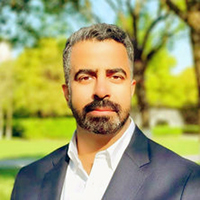
Prof. Ali Cheshmehzangi
Head of School
School of Architecture, Design and Planning
The University of Queensland,
Australia
Ali Cheshmehzangi is Professor in the School of Architecture, Design and Planning
(ADP) at the University of Queensland, where he leads the School and researches
across the fields of architecture, design, and planning/urbanism. He is the World’s
top 2% field leader for two consecutive years, recognised by Stanford University. He
is among top 30 global scholars in the urban sustainability research area. Ali is
internationally known for his scholarly contribution and extended work on climate
resilience and sustainable urbanism research, mainly as the Editor-in-Chief of
Springer’s Urban Sustainability (US) book series. He has five academic degrees
including a PhD Degree in Architecture and Urban Design, Master of Architecture
(M.Arch.) in Urban Design, Postgraduate Certificate in Higher Education (PGCHE),
Graduate Degree in Professional Studies in Architecture, and Bachelor’s Degree in
Architecture. Ali has a wealth of experience, expertise, and a strong commitment to
innovation and excellence in the fields of architecture, design, and planning, three
core disciplines of his School at UQ. With a career spanning over two decades, he
has made significant contributions to the academic and professional communities,
with a focus on sustainable and environmentally conscious design. Prior to joining
UQ, Ali held several strategic leadership and senior managerial roles, such as
Vice-President for International Engagement and Global Partnership, Founding
Director and Head of the Center for Innovation in Education and Research, Head of
the Department of Architecture and Built Environment, Founding Director of the Urban
Innovation Lab, Director of a university-wide Teaching and Learning platform,
Director of International Research Network for Rural and Urban Development, Head of
Research Group for Sustainable Built Environment, co-director of university-wide
research priority areas, Director of Center for Sustainable Energy Technologies, and
Interim Director of Digital Design Lab.
Speech Title: Practicing Nature-based Solutions for Sustainable
Urbanism
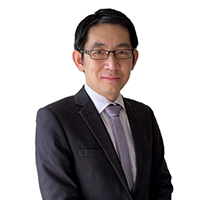
Assoc. Prof. Chow Ming Fai
Monash University Malaysia, Malaysia
Ir. Ts. Gs. Dr. Chow Ming Fai is an Associate Professor in the Civil Engineering
Discipline of the School of Engineering, Monash University Malaysia. His research
interests are mainly focus on (i) Sustainable urban stormwater management, (ii)
hydrological & water quality modeling, (iii) flood forecasting and inundation
modeling and (iv) hydropower and dam management. He completed bachelor degree of
civil engineering and PhD degree from University of Technology Malaysia (UTM) in
2007 and 2012, respectively. Since then, he had worked in Academia Sinica, Taiwan
and Universiti Tenaga Nasional (UNITEN). To date, he had successfully secured five
government grants (3 FRGS and 1 PRGS from Ministry of Higher Education Malaysia, 1
chair in energy economics (GCEE) grant from Energy Commission Malaysia) and 1
industry grant from Tenaga Nasional Berhad (TNB) as project leader. He had obtained
the professional engineer (Ir.), chartered engineer (CEng.), professional
technologist (Ts) and professional geospatialist recognitions. In 2015, Dr. Chow was
awarded the Green Talent award by German Federal Ministry of Education and Research
(BMBF) for his excellent in sustainability research. Besides that, he was awarded
the Outstanding Young Academician Award (category research & publication) 2016 and
Excellent Teaching Award 2019 by Universiti Tenaga Nasional. He has been involved in
many consultancy projects with clients from TNB, TNBR, Department of Irrigation and
Drainage Malaysia (DID) and Lembaga Kemajuan Pertanian Muda (MADA). Ir. Ts. Gs. Dr.
Chow is currently inviting potential postgraduate students (research) to join the
water research group in Monash University Malaysia.
Speech Title: Transforming Urban Futures with Digital Twin Innovation
Abstract: Rapid urbanization and climate challenges demand smarter and more resilient approaches to city planning and infrastructure management. Digital twin technology—virtual replicas of physical assets and processes—offers powerful opportunities to transform how cities are designed, managed, and sustained. By integrating IoT, AI, geospatial analytics, and cloud computing, digital twins enable real-time monitoring, predictive simulations, and data-driven decision-making. This keynote will highlight the applications of digital twins in sustainable urban development, including flood risk simulation, traffic and network analysis, green building performance, and carbon footprint management. Global initiatives such as Virtual Singapore, Digital Twin Victoria, and 3DNL Netherlands, alongside a Malaysian township case study, will illustrate their impact on planning, resilience, and stakeholder collaboration. The presentation will also discuss challenges in adoption—awareness, governance, and scalability—and propose pathways to accelerate digital twin integration for future-ready cities. Ultimately, digital twins are not just technological tools but enablers of innovative structures, resilient communities, and sustainable urban futures.
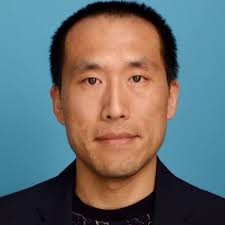
Dr. Richao Cong
Shizuoka University of Art and Culture, Japan
Dr. Cong is working as a lecturer at the Shizuoka University of Art and Culture,
Japan. He has published over 20 peer-reviewed papers and book chapters as the first
author covering the subject of plastic waste recycling and management, urban GHG
emission accounting & mapping, and energy system optimization. After obtaining his
Ph.D. in 2016, Dr. Cong started his work as a post-doctoral researcher at the
National Institute for Environmental Studies, Japan. In 2021, he moved to the
University of Kitakyushu as a senior researcher where he was responsible for many
research project promotions. Before moving to the current university, he worked as a
Specially Appointed Associate Professor at the University of Kitakyushu. He is
currently a Visiting Researcher at the National Institute for Environmental Studies
and a part-time Lecturer at the University of Kitakyushu. Up to now, the
international organization and Japanese academic institutes have awarded him three
times. Since 2012, he has made presentations for more than 50 times, reviewed
research papers for many reputable journals, and done the conference committees for
lots of international and domestic conferences.
Speech Title: Health Risk Assessment, Visitor Monitoring, and Prediction of COVID-19 Infections in Japanese Municipalities
Abstract: To prevent future outbreaks of the disease, we proposed an integrated framework including monitoring the visitors to hotspot facilities, health risks assessment (municipality level), validation of the effect of mitigation policies on COVID-19, and AI-based prediction of daily infections (prefectural level). A case study in Fukuoka demonstrated the effectiveness of monitoring specific groups prone to COVID-19 clusters and incorporating COVID-19 records into vulnerability index development. Through validation using monitored data from hotspots, associations between reductions in COVID-19 incidence and decreases in facility users were confirmed in Fukuoka and Tokyo. Interrupted Time Series analysis provided statistical meaning of the policy effect validation. Furthermore, the effectiveness of mandating social distancing policies on human mobility limitation became weaker over time. The infection rate acceleration and the rebounded number of facility users were observed. Thus, we recommend making disturbance policies for the hotspot facility users to prevent its rebound timely manner through periodic monitoring. By the proposed AI-based prediction approach, the prediction for Tokyo by using the Exponential model showed good performance, and the model was found to be stable enough in short term.
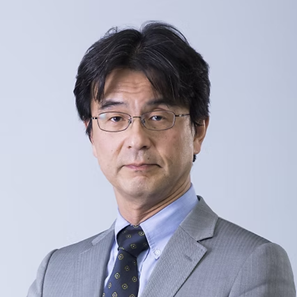
Dr. Muneo Hori
Director-General [Principal Scientist]
Japan Agency for Marine-Earth Science and Technology, Japan
Muneo Hori received the BE degree in Civil Engineering from the University of Tokyo,
Japan, in 1984, the ME degree in Civil Engineering from Northwestern University,
Evanston, Illinois, in 1985, and the PhD degree in Applied Mechanics and Engineering
Sciences from the University of California, San Diego, in 1987. He served as a
professor of Civil Engineering with the University of Tokyo, Japan, until 2018 and
is currently working as director-general of the Research Institute for
Value-Added-Information Generation with the JAMSTEC, Yokohama, Japan. His research
interests include large-scale integrated earthquake simulations, social science
simulations, meta-modeling of structures for rational numerical computation, tera
models of Earth, and fusion of remote sensing and simulation.
Speech Title: Digital Twin Technologies for Disaster Resilience
Abstract: We are advancing technologies for constructing digital twins of both individual structures and broader regions, with the goal of enhancing resilience against natural disasters. A central challenge in this endeavor lies in achieving the highest possible fidelity, which is essential for conducting realistic, physics-based simulations across the entire sequence of hazards, disasters, and disaster responses.
This keynote will present recent developments in digital twin technologies, including high-fidelity simulation platforms powered by high-performance computing, and automated methods for constructing digital twin models from diverse data sources. Case studies will be shared to illustrate digital twin applications for regional systems and critical infrastructure, highlighting their potential to support disaster preparedness, mitigation, and response strategies.
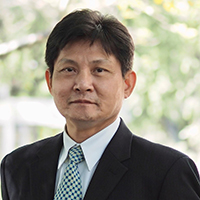
Prof. Vilas Nitivattananon
Asian Institute of Technology, Thailand
Dr. Vilas Nitivattananon is a Professor of Urban Innovation and Sustainability Program, Department of Development and Sustainability, and a former Dean of School of Environment, Resources and Development, at Asian Institute of Technology (AIT), Thailand. He was also a Visiting Professor of Faculty of Environment, Ho Chi Minh University of Technology, Vietnam and of Faculty of Ecology and Environment, Xiamen University, China. He has an academic background in engineering, economics and systems management, with a PhD from the University of Pittsburgh, USA. He had also worked for both academic and private sectors (in industrial and consulting business), as well as non-profit organizations. His areas of specialization and research interest include systems approach and management, urban competitiveness and resilience, climate change and urbanization, waste recycling and management, strategic and sustainable infrastructure development, sustainable tourism, and sustainability and impact assessment. He is editorial board members of several international journals and has published more than 100 articles in international journals and conference papers and book chapters – incl. Journal of Water Resources Planning and Management, Resource Conservation and Recycling, Waste Management, Desalination, Environmental Impact Assessment Review, Habitat International, Renewable & Sustainable Energy Reviews, Tourism Review, Remote Sensing, Sustainable Cities and Society, Advances in Climate Change Research, International Journal and Transportation Science and Technology, Regional Sustainability, International of Spa and Wellness, and Journal of Environmental Management.
Speech Title: Innovative and Sustainable Cities: Systems Perspective
Abstract: Sustainability issues faced by developing cities include air pollution, solid waste and plastic pollution, transportation, clean water supply, wastewater, unsustainable resource use, health and the urban environment, energy and climate change. The Asian and the Pacific cities are among the most vulnerable to a wide range of natural disasters, with many informal settlements located in fragile environmental areas on shorelines and major river basins. Also, there are multifaceted environmental opportunities provided by cities towards sustainable development comprising economies of scale and proximity for infrastructure and services, water reuse or recycling, reduce the demand for land relative to population, reduced heating/cooling, reduce motor vehicle use, pollution control and management, funding environmental management, etc. It is important to analyze these challenges and opportunities from a systems perspective for enhancing innovative and sustainable cities including applications of systems approach and solutions, as well as top-down and bottom-up approaches, synergies or co-benefits (e.g., climate change mitigation/adaptation with different development objectives) and good potential for partnership and networking, with trans-boundary concerns, natural and anthropogenic factors and interactions, multi-scale/governance, multi-sector/disciplinary, multi-theme/long-term goals, and multi-stakeholders/decision makers/users.
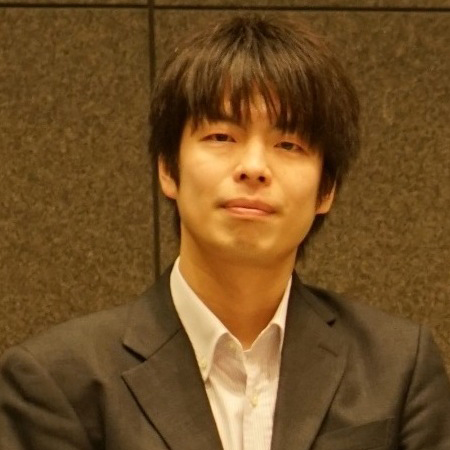
Assoc. Prof. Taku Yamazaki
Shibaura Institute of Technology, Japan
Taku Yamazaki received the B.E. and M.S. degrees in electronic information systems from Shibaura Institute of Technology, Tokyo, Japan, in 2012 and 2014, respectively. He received the D.E. degree in computer science and communications engineering from Waseda University, Tokyo, Japan, in 2017. He was a research associate at Department of Communications and Computer Engineering, School of Fundamental Science and Engineering, Waseda University, from 2015 to 2018. He was an adjunct researcher at Global Information and Telecommunication Institute, Waseda University, Tokyo, Japan from 2018 to 2021. He is presently an assosiate professor at Department of Electronic Information Systems, College of Systems Engineering and Science, Shibaura Institute of Technology, Saitama, Japan. He received IEICE Network Systems Research Award in 2014, the CANDAR/ASON Best Paper Award in 2014, IEICE Young Researcher's Award in 2015, IEICE Network Software Best Poster Award in 2016, IEICE Network Systems Young Researcher's Encouragement Award in 2018. He is a member of IEEE, ACM, IEICE, and JSEE.
Speech Title: Empowering Citizens to Shape Urban Digital Twins through 3D Mobile Crowdsensing
Abstract: Maintaining accurate and up-to-date urban digital twins (UDTs) requires large-scale, continuous spatial data collection—a challenge in terms of cost and sustainability. This keynote introduces a 3D mobile crowdsensing framework that empowers citizens to contribute to UDTs using LiDAR-enabled smartphones. By combining a gamified augmented reality (AR) approach and passive wearable sensing, our system enables both intentional and unobtrusive point cloud collection during daily activities. We demonstrate how this citizen-centric approach enhances data coverage, user motivation, and real-time urban modeling. The talk also highlights experimental results and discusses future directions for sustainable smart city development.